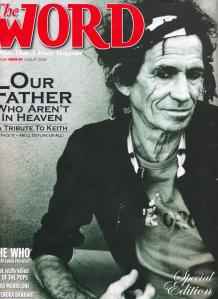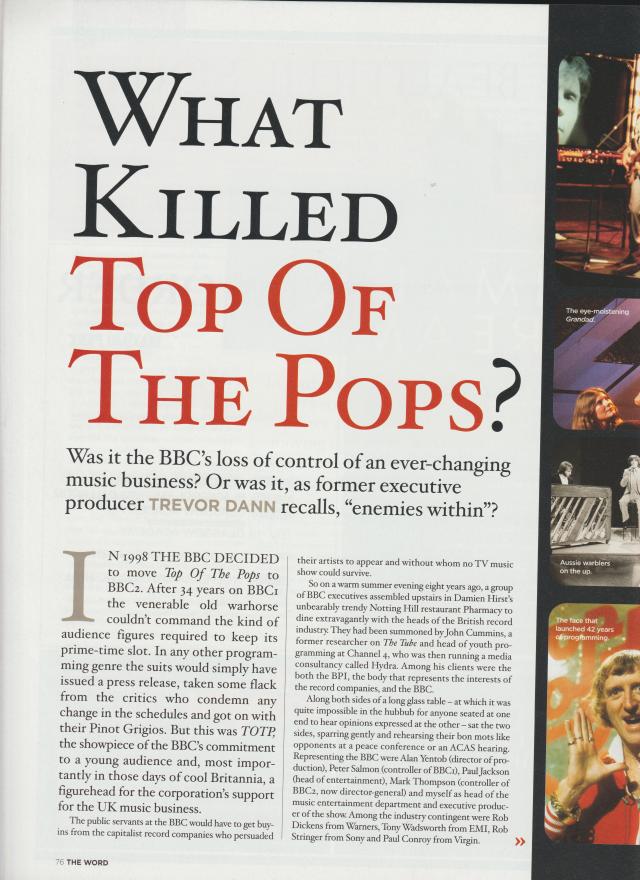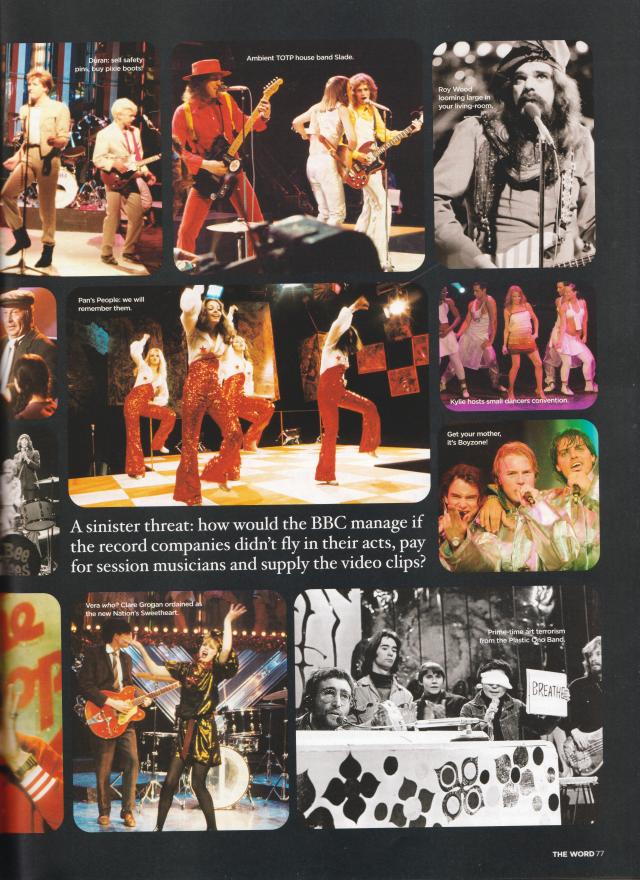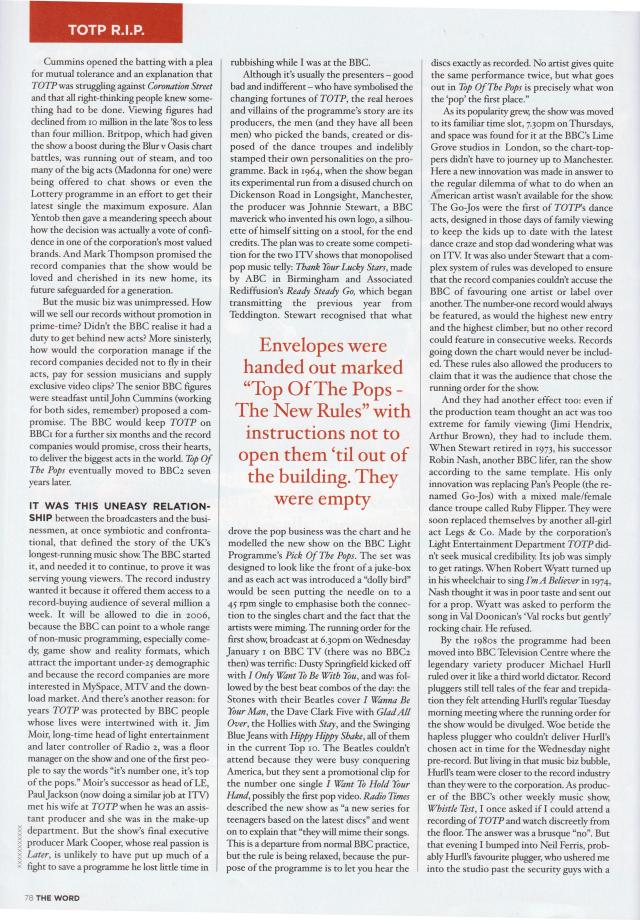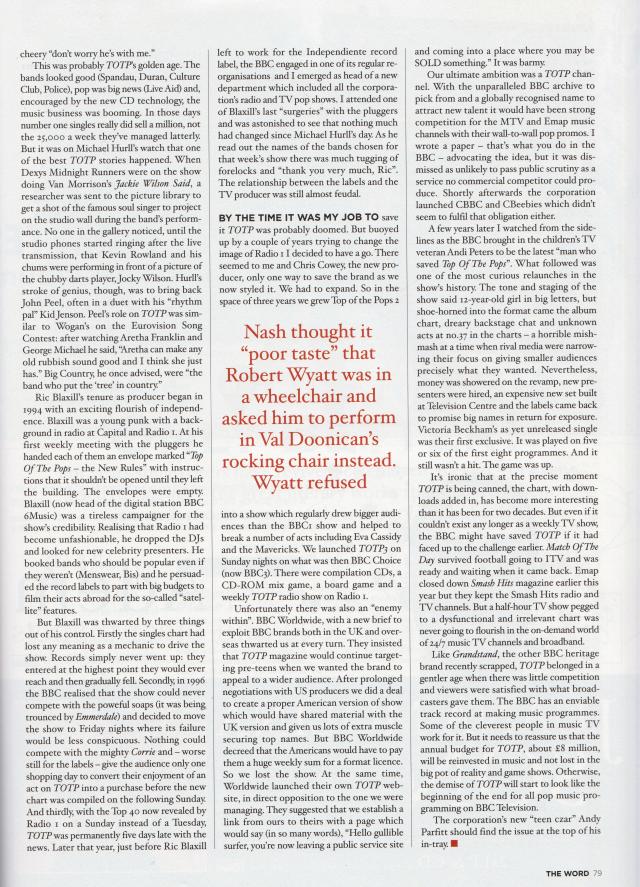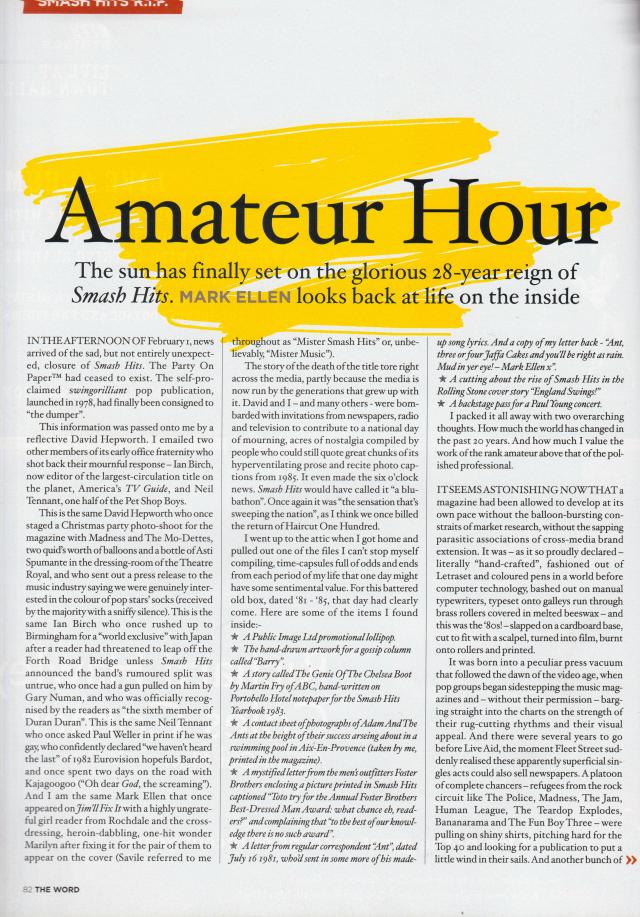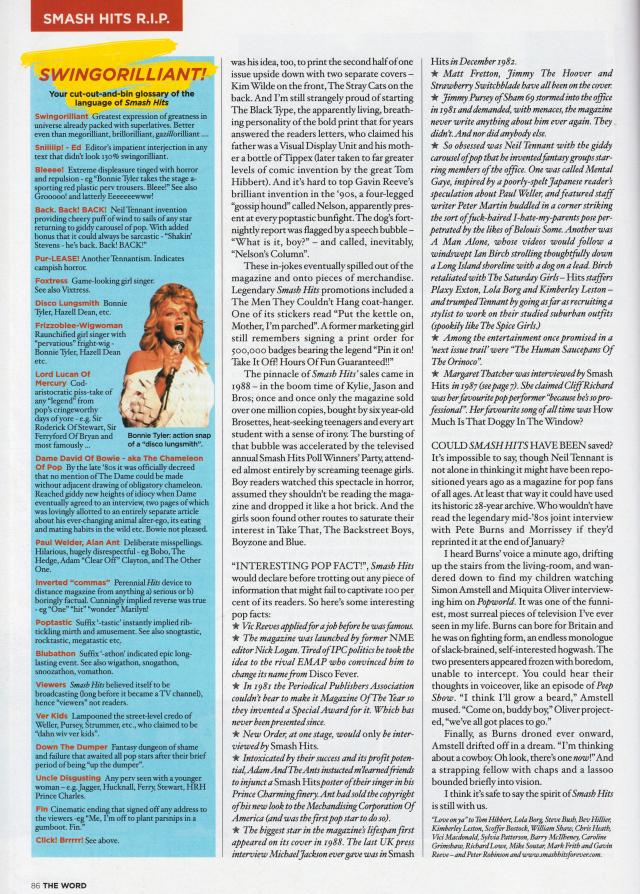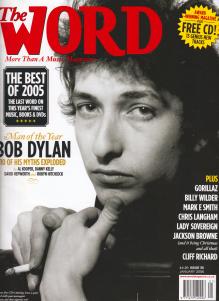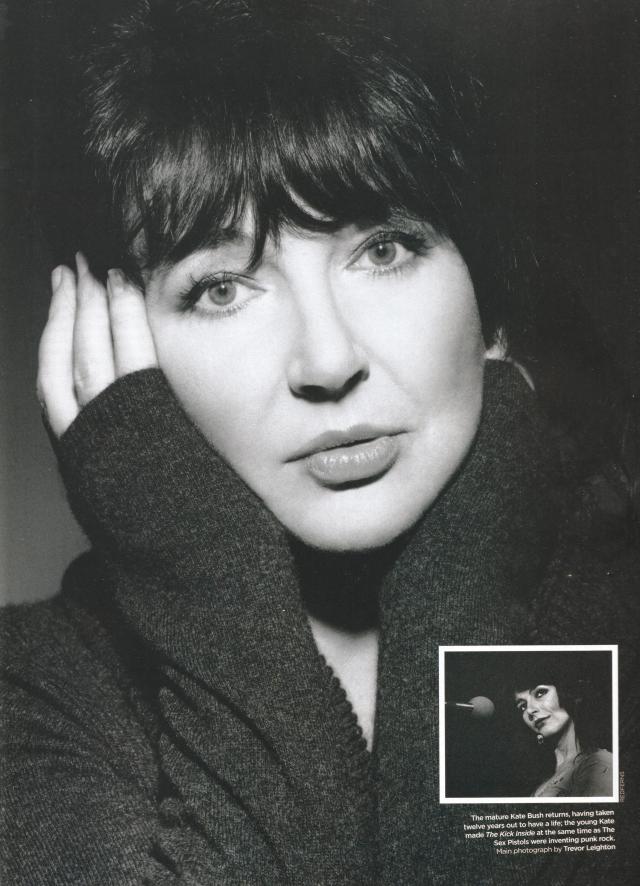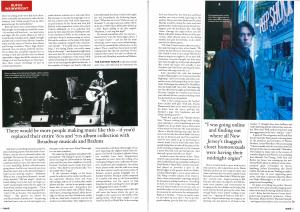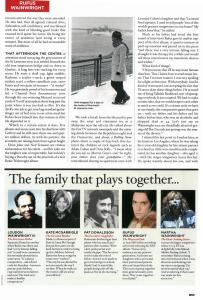Issue 43
September 2006

Cover star – various stars of the 80’s
Word shuffle
1) P123– the DVD of ‘Lost’ (Series 2, Part 1) is reviewed by Dorian Lynskey. ” The show demands that you embrace its absurdity; it leaves no room for dabblers or nitpickers. Personally, I love its pulpy energy. The story of the survivors of Oceanic Flight 815 began as a disaster B-movie and turned into the longest episode of ‘The Twilight Zone’ ever made (in one of several illuminating extras, creator JJ Abrams admits that Rod Serling’s freak-of-the-week classic is his favourite show), but there’s much more lurking beneath its trashy surface: the outlandish, paranoid mind games of ‘The Prisoner’ and the bizarro soap operatics of ‘Twin Peaks’ for starters.”
2) P17– the second of a 2 page article by Hazel Davis detailing addresses listed in pop songs. “King George Street by Squeeze: Difford and Tilbrook’s gloomy narrative chronicles domestic abuse and poverty in SE10. A heart-rending tale from pop’s social commentators, yet the street remains uncommemorated and the wife-beaters still stalk the place with impunity. Allegedly.” She also mentions the prostitutes on Chatham High Street (as mentioned by Billy Childish, Bleecker Street (Simon and Garfunkel) and Killermont Street (Aztec Camera).
3) P73 – final page of Toby Manning’s 4 page piece on Syd Barrett. “After ‘Barrett’ (his 2nd solo album), what (Peter Jenner (his co-manager) calls ‘the fog’ became thicker. “Always stuff would emerge from the fog and then disappear back in. In the earlier sessions it was more like a song. Later it was a snatch of riff or lyric. You couldn’t really communicate. We’d just try and encourage him. It’s really hard to accept that someone who’d been so creative and so full of creative energy couldn’t get it back out. Unbelievably frustrating and upsetting.”
4) P62 – third page of Lynsey Hanley’s 4 page piece on Belle And Sebastian from their gig at the Hollywood Bowl. “There’s as much of a glint as a twinkle in (Stuart) Murdoch’s eye as he talks: Belle And Sebastian is more than simply a band, it’s the life he lives. It’s the one he dreamed of when he was ill, which is why it matters so much. Sheer will is what brought the band into existence, and is what keeps the whole endeavour going. Therein lies the secret of the elevation of B&S from indie figureheads to a band that can command the attention of 20, 000 excitable Californians: to Murdoch, this was always their destiny.”
5) P97 – a page of adverts for gigs. The Feeling play 19 dates, Aberfeldy do 15 whilst Ryan Adams & The Cardinals offer the punters a mere 6. There’s also an advert for Chilton Fest 2006, asking for “bands/helpers’punters to come and enjoy what is likely to build into one of the more special events in the UK Summer Music calendar.” A cursory google search reveals that in early 2017, Chilton Fest is pining for the fjords.
Interesting – In the ‘Word Of Mouth section, Russell Brand reveals his musical tastes: “I like a bit of drama, a bit of mystery and portent which leads me naturally to Nick Cave And The Bad Seeds. I’ve been listening to ‘No More Shall We Part’ a lot recently. I really do enjoy him enormously, but it’s The Smiths and Morrissey that really rule my musical life. I love what Morrissey is doing now in very much the same way as I loved what he was doing 20 years ago. My cousins were really big fans of The Smiths and they introduced me to what is now a daily pleasure.The music and the lyrics have invaded my life and my philosophy and inform everything I do.”
By contrast, the cricketer Kevin Pietersen is less florid in his approach. “Last year when we were playing in the Ashes, my big album was ‘Hot Fuss’ by The Killers, I listened to to them a lot. What do I like about them? What do you mean mate? I like their music, I’m not a big analyser mate.”
Tony Hadley reminisces about the heady days of New Romanticism. “My granddad, a lovely man and always very smart in a suit, I met him once outside Waterloo station and he refused to sit in the same carriage as me. I was wearing ballet slippers, white socks, wrap-around Iranian Cossack-type trousers, tight at the ankles and baggy with a flap like Aladdin up the front and a silk shirt with Greek imprints, make-up and a headband. And this was only going to see my Mum and Dad in Pontins.”
Paul Du Noyer speaks to Daniel Johnston on the release of the documentary ‘The Devil and Daniel Johnston’
PDN: It’s amazing that so much of your life has been recorded. On the DVD it’s like you’ve used a video camera or a tape recorder almost every day since childhood. Why is that?
DJ: Well, I think I was trying in my mind to be famous, so I wouldn’t have to work at the pottery.
PDN: The pottery?
DJ: They have lots of potteries back in West Virginia, you know, for pots and dishes and stuff. I worked in a place for cups and saucers. It was a great luxury to have the radio on all day long, but I had to get out of there. It took me a long time to make money on my art, but now my art sells on my website for a pretty good price. I have a lot of extra money to spend and I feel like I’m rich. I just go and buy albums and DVDs all the time.”
Longer article
Bob Lefsetz is interviewed by Mark Ellen about the future of the music industry.


